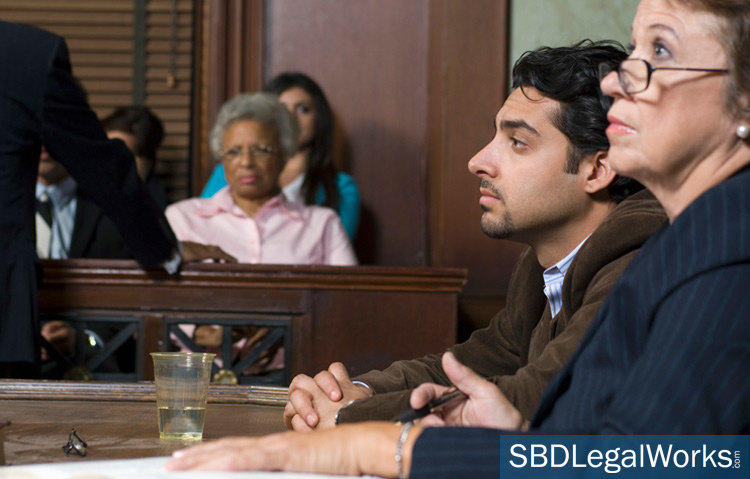
Courtroom TV dramas like the Law & Order franchise are enormously popular, with the strategic approach of defense attorney portrayed and the legal jousting making for great prime-time television.
But how does it work in the real world?
If you are charged with a crime, here are the most common criminal defense strategies you can rely on.
1. Reasonable doubt
The most basic principle of American jurisprudence is that the defendant must be proven guilty “beyond a reasonable doubt.” The use of the word reasonable is important here; it means the defense can’t come up with some outlandish theory that no sane person would believe. But the principle underscores that the burden of proof in a criminal trial lies exclusively—100 percent—with the prosecutor.
It’s that principle which leads to further requirements, such as a unanimous verdict from a 12-person jury to convict. It’s not enough to be “pretty sure” the defendant did it. It’s not enough for 7-8 of the jury members to be convinced. Only after all 12 jurors are convinced beyond a reasonable doubt of the defendant’s guilt can a conviction be obtained.
2. Self-defense
Self-defense can be employed in an assault or a murder case if the defendant was only responding to a threat to their own safety. It may be necessary if the prosecution has ironclad proof that the defendant is the one who threw the punch or pulled the trigger.
But it’s not ideal. Invoking self-defense removes reasonable doubt from the arsenal of the defendant. They have essentially admitted to the jury that yes, they did do it. Now the burden of proof has shifted to the defendant to show that they were acting in self-defense.
Furthermore, self-defense must be proportional. If an unarmed person is running away after attempting to steal your money, you can’t unload 3 fatal shots to the head as a response.
3. Alibi
If you can employ an alibi, your case probably never makes it to trial. If an armed robbery happened at 8:30 p.m. and you have a credit card receipt showing you were in a restaurant at that time, you’ve got firm proof you didn’t do it. Even a bartender affirming your presence at the time of the crime will probably persuade investigators that you’re not the guilty one.
4. Insanity
Insanity is another defense that’s not ideal because it presupposes your guilt and shifts the burden of proof to you. In this case, insanity is difficult to prove and relies on expert witness testimony, of which the prosecution will surely counter. And even if it works, you’re not off the hook—you may not go to prison, but you still may have a long treatment stay.
5. Illegal evidence
Did the police have a warrant when they searched your vehicle and found illegal substances? Did that confession you made come under police duress? If so, the evidence can be thrown out before trial and if it’s all the prosecution had, your case will likely be dropped.
6. Unreliable witness
Let’s say the prosecution has someone who claims to have seen you do it, but you have good reason to believe that witness has a drinking problem and may not have been seeing clearly. Or that they have eyesight issues and weren’t wearing their glasses. Or any other factor which might leave the jury disinclined to believe them. By asserting the witness is unreliable, this can be a successful defense strategy.